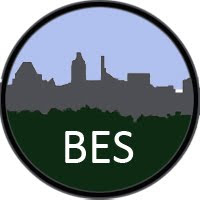Post-doctoral Position – Urban Environments, Biodiversity and Conservation

The Centre for Urban Environments and School of Cities at the University of Toronto are seeking applications for a 2-year Post-Doctoral Researcher to study Urban Environments, Biodiversity and Conservation. This position represents a collaboration between the University of Toronto and three conservation authorities in the Greater Toronto Area (GTA): the Toronto and Region Conservation Authority (https://trca.ca), the Credit Valley Conservation Authority (https://cvc.ca) and Conservation Halton (http://www.conservationhalton.ca). The successful candidate will have the freedom to collaborate with one or more university researchers that are affiliated with the Centre for Urban Environments (see PI listed at https://www.utm.utoronto.ca/cue/people). The conservation authorities have extensive data from within their jurisdictions on: 1) the history of land use and urban development; 2) physical environmental features in rivers, ponds and lakes (e.g., water depth and flow rates, temperature, dissolved oxygen, chloride concentration, etc.) and on land (air temperature, precipitation, evapotranspiration, soil type, etc.); and 3) the diversity and abundance of native and exotic aquatic and terrestrial plants and animal (e.g., fishes, birds, amphibians, benthic macroinvertebrates) species. Much of this data is available at 100s of locations in the GTA along spatio-temporal gradients of urbanization. For some environmental factors and communities, these data stretch back to the 1950s, and for most measures of the abiotic and biotic environment, temporally sampled data stretches back 15-20 years. A brief introduction to some of these datasets is available at the links provided at the bottom of this advertisement. The successful candidate is expected to work with conservation authorities’ existing datasets to address both of the following two general problems:
1) The effects of urbanization on terrestrial or aquatic abiotic environmental factors over space and/or time
2) The impacts of urbanization on native and exotic biodiversity
The successful candidate will have extensive flexibility and independence to identify the specific research questions they wish to answer, and is expected to collaborate with CUE researchers and the conservation authorities to identify and answer these questions. The successful candidate will focus on analyzing existing data from the conservation authorities and publishing peer-reviewed scientific papers; research will not involve the collection of new data. We are interested in all outstanding post-doctoral applicants with an interest and expertise in the application of environmental science and ecology to urban studies. Advanced knowledge of statistics in these areas of research is required, and candidates with experience in analyzing large datasets involving spatial and temporal variation is preferred.
The successful candidate will be a member of the Centre for Urban Environments (www.urbanenvironment.ca) and be affiliated with the School of Cities (https://www.schoolofcities.utoronto.ca) at the University of Toronto. The successful applicant will have a home lab and campus based at the location of where their primary university collaborator(s) is located. Applicants do not need to identify potential collaborating faculty at the time of application, but they may do so if they so choose. The University of Toronto comprises three campuses in Mississauga (https://www.utm.utoronto.ca), downtown Toronto (https://www.utoronto.ca), and Scarborough (https://www.utsc.utoronto.ca). The University has outstanding resources and is among the top institutions in the world. The Greater Toronto Area is Canada’s largest metropolitan area and one of the world’s most multicultural cities. The city boasts a wide diversity of cultural, culinary, and natural spaces (https://www.toronto.ca/explore-enjoy/history-art-culture/).
Applications should include:
i) Cover letter: Describe the specific research topics you would be most interested and qualified to study. Applicants are expected to address both problems above using the conservation authorities’ existing data, but the successful applicant may choose to focus on particular types of environments (e.g., aquatic or terrestrial), specific groups of taxa (e.g., fishes, plants, birds, etc.), or along a single axis of urban environmental variation (e.g., spatial or temporal variation). Applicants should describe their experience in analyzing large environmental and/or ecological datasets. Applicants should also emphasize their role and track record with collaborative interdisciplinary research.
ii) Curriculum Vitae: Include a full CV, emphasizing degrees obtained, publications, awards, and a list of past collaborators
iii) Publications: PDFs of top three publications
iv) References: contact information for three references.
Starting salary: $45,000 CAD + benefits ($5,000)
• Benefits include health, drug, dental, parental leave and more.
• Complete information on benefits can be found at: http://benefits.hrandequity.utoronto.ca/cupe-local-3902-unit-5/
Start date: Flexible, but preferably summer/fall 2020
Duration: 2 years (conditional on favourable annual performance review)
Application Deadline: Review of applications will commence March 15, 2020. Please send applications to Prof. Marc Johnson, Director of CUE at cue@utoronto.ca, with the subject header: “Applicant Name: CUE/SoC Urban Environmental Post-doc Application”.
This job is posted in accordance with the CUPE 3902 Unit 5 Collective Agreement. The normal hours of work are 40 hours per week for a full-time postdoctoral fellow recognizing that the needs of the employee’s research and training and the needs of the supervisor’s research program may require flexibility in the performance of the employee’s duties and hours of work. The position will regularly require evening and/or weekend work.
The University of Toronto is strongly committed to diversity within its community and especially welcomes applications from racialized persons / persons of colour, women, Indigenous / Aboriginal People of North America, persons with disabilities, LGBTQ persons, and others who may contribute to the further diversification of ideas.
Overview of geographical, environmental and biological monitoring programs and data can be found at the following websites:
Toronto and Region Conservation Authority https://trca.ca/conservation/environmental-monitoring https://data.trca.ca/dataset
Credit Valley Conservation Authority https://cvc.ca/watershed-science/watershed-monitoring/ http://www.peelregion.ca/planning/pdc/data/monitoring/watersheds/maps.htm
Conservation Halton https://www.conservationhalton.ca/long-term-environmental-monitoring https://www.conservationhalton.ca/mapping-and-data




 Tobias Hutzler / Trunk Archive
Tobias Hutzler / Trunk Archive